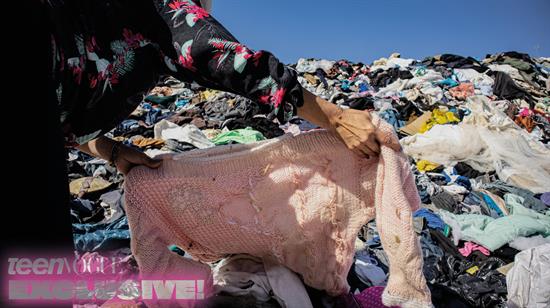Press Releases
Pingree, DeLauro, Carper Announce First-Ever Federal Report on Fast Fashion PollutionThe Government Accountability Office’s report, requested by Pingree and DeLauro in 2023, examines the environmental impact of textile waste and identifies what actions the federal government can take to reduce textile waste and advance textile recycling
Washington,
December 12, 2024
Today, U.S. Representatives Chellie Pingree (D-Maine) and Rosa DeLauro (D-Conn.) and Senator Tom Carper (D-Del.), Chairman of the Senate Environment and Public Works Committee, released findings from the federal government’s first-ever report on textile waste in the United States. The Government Accountability Office’s (GAO) report, requested by Pingree and DeLauro in 2023, examines the environmental impact of textile waste, describes how the rate of textile waste has increased in recent decades, and identifies what actions the federal government can take to reduce textile waste and advance textile recycling. The GAO is recommending Congress consider providing direction to a federal entity, or entities, to coordinate and take action to reduce textile waste and advance textile recycling. GAO also made seven recommendations to six federal entities, including that they collaborate through an interagency mechanism. “Textile waste—driven by fast fashion—is one of the fastest growing waste streams in the United States, yet no federal entity is required to address this waste. The Government Accountability Office’s report confirms that fast fashion’s toll on our planet is undeniable. From contributing to greenhouse gas emissions to microplastic and forever chemical contamination, the environmental costs are staggering,” said Pingree. “This report is a wakeup call for Congress to take bold action. As Founder and Chair of the Congressional Slow Fashion Caucus, which is developing policy to reduce natural resource consumption and promote reusing, repairing, and recycling textiles, I will introduce legislation next Congress to support and build on these recommendations. Together, we can transition from a linear, throwaway economy to a circular one that protects our environment and communities. I am grateful to the advocates, industry leaders, and colleagues who are standing with me to tackle fast fashion pollution. This is just the beginning.” “Fast fashion has created an unsustainable cycle of overproduction and overwhelming waste that is hurting our environment and communities,” said DeLauro. “This report underscores the need for federal leadership to curb the staggering environmental and economic costs of textile waste. I am proud to have worked alongside Congresswoman Pingree and Senator Carper to shine a light on this issue. I am committed to advancing policies that protect the health of our planet for generations to come and look forward to working with Congresswoman Pingree in reduce textile waste while advancing textile recycling." “Every second, a dump truck of textiles ends up in a landfill. The fashion industry is responsible for nearly ten percent of all global greenhouse gas emissions — more than the aviation sector and maritime shipping combined,” said Senate Environment and Public Works Committee Chairman Tom Carper. “Reducing waste from textiles like clothing and upholstery is an important opportunity for Congress and federal agencies to act to protect our planet. We’ve already made great progress in strengthening recycling programs, but addressing the challenges specific to textile waste requires additional efforts. This report highlights the positive steps agencies have already taken to promote textile sustainability, and it also makes it clear that we need a coordinated federal effort to increase textile reuse and recycling for years to come.” Background: The rise of so-called “fast fashion” has become an urgent environmental problem. Today, nearly two-thirds of all the fibers we wear and use are made from fossil fuel products. The fashion industry is now responsible for more carbon emissions than all international flights and maritime shipping combined. Fast fashion relies on cheap manufacturing, frequent consumption, and short-lived garment use. This constant cycle of production and disposal is taking a huge toll on our environment. Over the last two decades, in line with the ascension of fast fashion, the rate of textile waste has increased tremendously. In 2018, the Environmental Protection Agency estimated 17 million tons of textiles were generated in the U.S. Textile waste is now one of the fastest growing waste streams in the U.S., but only 15% of clothing in the U.S. is recycled or reused, with the rest either incinerated or sent to landfills for disposal. In addition, over the past several decades, hundreds of thousands of fiber and textile jobs that once sustained communities across America have shifted overseas, harming American farmers and communities in the process. Pingree founded and launched the Congressional Slow Fashion Caucus in June 2024 to create climate-smart policies to reduce, repair, rewear, and recycle textiles. DeLauro is Ranking Member of the House Appropriations Committee. Carper is Chair of the Senate Committee on Environment and Public Works and is Co-Chair of the Senate Recycling Caucus. ### |

